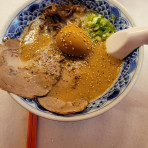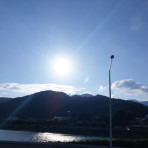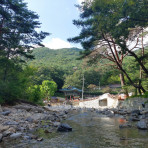Cross-Strait tensions at risk of rising after Kinmen incident
본문
Mon, 19 Feb 2024 01:53:00 -0500

Updated Feb. 19, 2024, 05:03 a.m. ET.
Both Taipei and Beijing have said they will “enforce the law” in the waters between Kinmen island and China’s mainland after last week’s incident that resulted in the deaths of two Chinese men.
Taiwan authorities said on Feb. 14, a Chinese speedboat “trespassed” within 1.1 nautical miles of the eastern coast of the island of Kinmen. The Taiwanese coast guard deployed vessels to expel the boat “in accordance with the law.”
The Chinese crew “refused to be inspected” and their boat capsized, according to a press release from Taiwan’s Mainland Affairs Council (MAC) – the agency in charge of cross-Strait issues. Four people on board fell into the sea, two of them died.
Kinmen is an outlying archipelago less than 10 kilometers (6.2 miles) from China’s Fujian province but more than 180 kilometers (112 miles) from Taiwan’s mainland. The island and Fujian’s city of Xiamen are separated by Xiamen Bay.
China Coast Guard spokesperson Gan Yu said on Sunday that China has launched regular law enforcement patrols in the area as part of efforts “to protect fishermen's lives and property.”
The Fujian branch of the coast guard will “strengthen maritime law enforcement in the relevant waters,” Gan said in a statement.
Before that, a spokesperson for China’s Taiwan Affairs Office Zhu Fenglian condemned the incident which, she said, sparked widespread outrage on the mainland, and severely hurt the feelings of compatriots on both sides of the Taiwan Strait.
‘Both sides are nervous’
In response to Gan Yu’s announcement, Taipei’s MAC said on Sunday that law enforcement activities by the Taiwanese coast guard “will continue.”
“According to cross-Strait regulations, mainland ships are not allowed to enter Taiwan's restricted and prohibited waters without permission,” it said in a statement, “In order to safeguard the rights and interests of fishermen, our competent authorities will expel or detain cross-border vessels in accordance with the law.”
The latest developments show that “both sides are nervous,” said a Kinmen resident, military historian Timothy Tsai.
“I'm not a fisherman, so I don't worry much at the moment yet,” said Tsai, who heads a local military history group.
“But if the tension between the two sides of the Taiwan Strait is escalating further then it will definitely be a concern for everyone.”
Tourists taking pictures in front of a military tank, half buried in the sand on a beach in Kinmen, Aug. 20, 2022. (RFA)
In recent months Kinmen has seen frequent flyovers by Chinese drones, and many believe it could be the first target of a Chinese invasion in the future.
However, Su Tzu-yun, a senior analyst at the Institute for National Defense and Security Research in Taipei, said that in his opinion “this incident will not escalate into a military conflict.”
“However, it is important to note that China's systematic approach, through the proximity of merchant ships close to Taiwan's home island waters and the harassment of fishing boats, indicates that China can still exert pressure on Taiwan,” Su told RFA.
“But Taiwan should not respond alone,” the military analyst said, “Chinese fishing boats have clashed with Korea in the Yellow Sea, with Japan's Coast Guard in the East China Sea, and with the Philippine Coast Guard in the South China Sea.”
“Even in South America, Chinese fishing vessels have clashed with fishermen and sea captains from various countries,” he noted.
“The international community should collectively protest against Beijing's threat to global fishery resources.”
Edited by Mike Firn and Elaine Chan.
Updated to add video and comments from analyst.
Updated Feb. 19, 2024, 05:03 a.m. ET.
Both Taipei and Beijing have said they will “enforce the law” in the waters between Kinmen island and China’s mainland after last week’s incident that resulted in the deaths of two Chinese men.
Taiwan authorities said on Feb. 14, a Chinese speedboat “trespassed” within 1.1 nautical miles of the eastern coast of the island of Kinmen. The Taiwanese coast guard deployed vessels to expel the boat “in accordance with the law.”
The Chinese crew “refused to be inspected” and their boat capsized, according to a press release from Taiwan’s Mainland Affairs Council (MAC) – the agency in charge of cross-Strait issues. Four people on board fell into the sea, two of them died.
Kinmen is an outlying archipelago less than 10 kilometers (6.2 miles) from China’s Fujian province but more than 180 kilometers (112 miles) from Taiwan’s mainland. The island and Fujian’s city of Xiamen are separated by Xiamen Bay.
China Coast Guard spokesperson Gan Yu said on Sunday that China has launched regular law enforcement patrols in the area as part of efforts “to protect fishermen's lives and property.”
The Fujian branch of the coast guard will “strengthen maritime law enforcement in the relevant waters,” Gan said in a statement.
Before that, a spokesperson for China’s Taiwan Affairs Office Zhu Fenglian condemned the incident which, she said, sparked widespread outrage on the mainland, and severely hurt the feelings of compatriots on both sides of the Taiwan Strait.
‘Both sides are nervous’
In response to Gan Yu’s announcement, Taipei’s MAC said on Sunday that law enforcement activities by the Taiwanese coast guard “will continue.”
“According to cross-Strait regulations, mainland ships are not allowed to enter Taiwan's restricted and prohibited waters without permission,” it said in a statement, “In order to safeguard the rights and interests of fishermen, our competent authorities will expel or detain cross-border vessels in accordance with the law.”
The latest developments show that “both sides are nervous,” said a Kinmen resident, military historian Timothy Tsai.
“I'm not a fisherman, so I don't worry much at the moment yet,” said Tsai, who heads a local military history group.
“But if the tension between the two sides of the Taiwan Strait is escalating further then it will definitely be a concern for everyone.”
Tourists taking pictures in front of a military tank, half buried in the sand on a beach in Kinmen, Aug. 20, 2022. (RFA)
In recent months Kinmen has seen frequent flyovers by Chinese drones, and many believe it could be the first target of a Chinese invasion in the future.
However, Su Tzu-yun, a senior analyst at the Institute for National Defense and Security Research in Taipei, said that in his opinion “this incident will not escalate into a military conflict.”
“However, it is important to note that China's systematic approach, through the proximity of merchant ships close to Taiwan's home island waters and the harassment of fishing boats, indicates that China can still exert pressure on Taiwan,” Su told RFA.
“But Taiwan should not respond alone,” the military analyst said, “Chinese fishing boats have clashed with Korea in the Yellow Sea, with Japan's Coast Guard in the East China Sea, and with the Philippine Coast Guard in the South China Sea.”
“Even in South America, Chinese fishing vessels have clashed with fishermen and sea captains from various countries,” he noted.
“The international community should collectively protest against Beijing's threat to global fishery resources.”
Edited by Mike Firn and Elaine Chan.
Updated to add video and comments from analyst.
자유아시아방송 제공 및 저작권 소유 | RFA provided and copyrighted -www.rfa.org

Updated Feb. 19, 2024, 05:03 a.m. ET.
Both Taipei and Beijing have said they will “enforce the law” in the waters between Kinmen island and China’s mainland after last week’s incident that resulted in the deaths of two Chinese men.
Taiwan authorities said on Feb. 14, a Chinese speedboat “trespassed” within 1.1 nautical miles of the eastern coast of the island of Kinmen. The Taiwanese coast guard deployed vessels to expel the boat “in accordance with the law.”
The Chinese crew “refused to be inspected” and their boat capsized, according to a press release from Taiwan’s Mainland Affairs Council (MAC) – the agency in charge of cross-Strait issues. Four people on board fell into the sea, two of them died.
Kinmen is an outlying archipelago less than 10 kilometers (6.2 miles) from China’s Fujian province but more than 180 kilometers (112 miles) from Taiwan’s mainland. The island and Fujian’s city of Xiamen are separated by Xiamen Bay.
China Coast Guard spokesperson Gan Yu said on Sunday that China has launched regular law enforcement patrols in the area as part of efforts “to protect fishermen's lives and property.”
The Fujian branch of the coast guard will “strengthen maritime law enforcement in the relevant waters,” Gan said in a statement.
Before that, a spokesperson for China’s Taiwan Affairs Office Zhu Fenglian condemned the incident which, she said, sparked widespread outrage on the mainland, and severely hurt the feelings of compatriots on both sides of the Taiwan Strait.
‘Both sides are nervous’
In response to Gan Yu’s announcement, Taipei’s MAC said on Sunday that law enforcement activities by the Taiwanese coast guard “will continue.”
“According to cross-Strait regulations, mainland ships are not allowed to enter Taiwan's restricted and prohibited waters without permission,” it said in a statement, “In order to safeguard the rights and interests of fishermen, our competent authorities will expel or detain cross-border vessels in accordance with the law.”
The latest developments show that “both sides are nervous,” said a Kinmen resident, military historian Timothy Tsai.
“I'm not a fisherman, so I don't worry much at the moment yet,” said Tsai, who heads a local military history group.
“But if the tension between the two sides of the Taiwan Strait is escalating further then it will definitely be a concern for everyone.”
Tourists taking pictures in front of a military tank, half buried in the sand on a beach in Kinmen, Aug. 20, 2022. (RFA)
In recent months Kinmen has seen frequent flyovers by Chinese drones, and many believe it could be the first target of a Chinese invasion in the future.
However, Su Tzu-yun, a senior analyst at the Institute for National Defense and Security Research in Taipei, said that in his opinion “this incident will not escalate into a military conflict.”
“However, it is important to note that China's systematic approach, through the proximity of merchant ships close to Taiwan's home island waters and the harassment of fishing boats, indicates that China can still exert pressure on Taiwan,” Su told RFA.
“But Taiwan should not respond alone,” the military analyst said, “Chinese fishing boats have clashed with Korea in the Yellow Sea, with Japan's Coast Guard in the East China Sea, and with the Philippine Coast Guard in the South China Sea.”
“Even in South America, Chinese fishing vessels have clashed with fishermen and sea captains from various countries,” he noted.
“The international community should collectively protest against Beijing's threat to global fishery resources.”
Edited by Mike Firn and Elaine Chan.
Updated to add video and comments from analyst.
Updated Feb. 19, 2024, 05:03 a.m. ET.
Both Taipei and Beijing have said they will “enforce the law” in the waters between Kinmen island and China’s mainland after last week’s incident that resulted in the deaths of two Chinese men.
Taiwan authorities said on Feb. 14, a Chinese speedboat “trespassed” within 1.1 nautical miles of the eastern coast of the island of Kinmen. The Taiwanese coast guard deployed vessels to expel the boat “in accordance with the law.”
The Chinese crew “refused to be inspected” and their boat capsized, according to a press release from Taiwan’s Mainland Affairs Council (MAC) – the agency in charge of cross-Strait issues. Four people on board fell into the sea, two of them died.
Kinmen is an outlying archipelago less than 10 kilometers (6.2 miles) from China’s Fujian province but more than 180 kilometers (112 miles) from Taiwan’s mainland. The island and Fujian’s city of Xiamen are separated by Xiamen Bay.
China Coast Guard spokesperson Gan Yu said on Sunday that China has launched regular law enforcement patrols in the area as part of efforts “to protect fishermen's lives and property.”
The Fujian branch of the coast guard will “strengthen maritime law enforcement in the relevant waters,” Gan said in a statement.
Before that, a spokesperson for China’s Taiwan Affairs Office Zhu Fenglian condemned the incident which, she said, sparked widespread outrage on the mainland, and severely hurt the feelings of compatriots on both sides of the Taiwan Strait.
‘Both sides are nervous’
In response to Gan Yu’s announcement, Taipei’s MAC said on Sunday that law enforcement activities by the Taiwanese coast guard “will continue.”
“According to cross-Strait regulations, mainland ships are not allowed to enter Taiwan's restricted and prohibited waters without permission,” it said in a statement, “In order to safeguard the rights and interests of fishermen, our competent authorities will expel or detain cross-border vessels in accordance with the law.”
The latest developments show that “both sides are nervous,” said a Kinmen resident, military historian Timothy Tsai.
“I'm not a fisherman, so I don't worry much at the moment yet,” said Tsai, who heads a local military history group.
“But if the tension between the two sides of the Taiwan Strait is escalating further then it will definitely be a concern for everyone.”
Tourists taking pictures in front of a military tank, half buried in the sand on a beach in Kinmen, Aug. 20, 2022. (RFA)
In recent months Kinmen has seen frequent flyovers by Chinese drones, and many believe it could be the first target of a Chinese invasion in the future.
However, Su Tzu-yun, a senior analyst at the Institute for National Defense and Security Research in Taipei, said that in his opinion “this incident will not escalate into a military conflict.”
“However, it is important to note that China's systematic approach, through the proximity of merchant ships close to Taiwan's home island waters and the harassment of fishing boats, indicates that China can still exert pressure on Taiwan,” Su told RFA.
“But Taiwan should not respond alone,” the military analyst said, “Chinese fishing boats have clashed with Korea in the Yellow Sea, with Japan's Coast Guard in the East China Sea, and with the Philippine Coast Guard in the South China Sea.”
“Even in South America, Chinese fishing vessels have clashed with fishermen and sea captains from various countries,” he noted.
“The international community should collectively protest against Beijing's threat to global fishery resources.”
Edited by Mike Firn and Elaine Chan.
Updated to add video and comments from analyst.
좋아요3
이 글을 좋아요하셨습니다
관련링크
등록된 댓글이 없습니다.





































